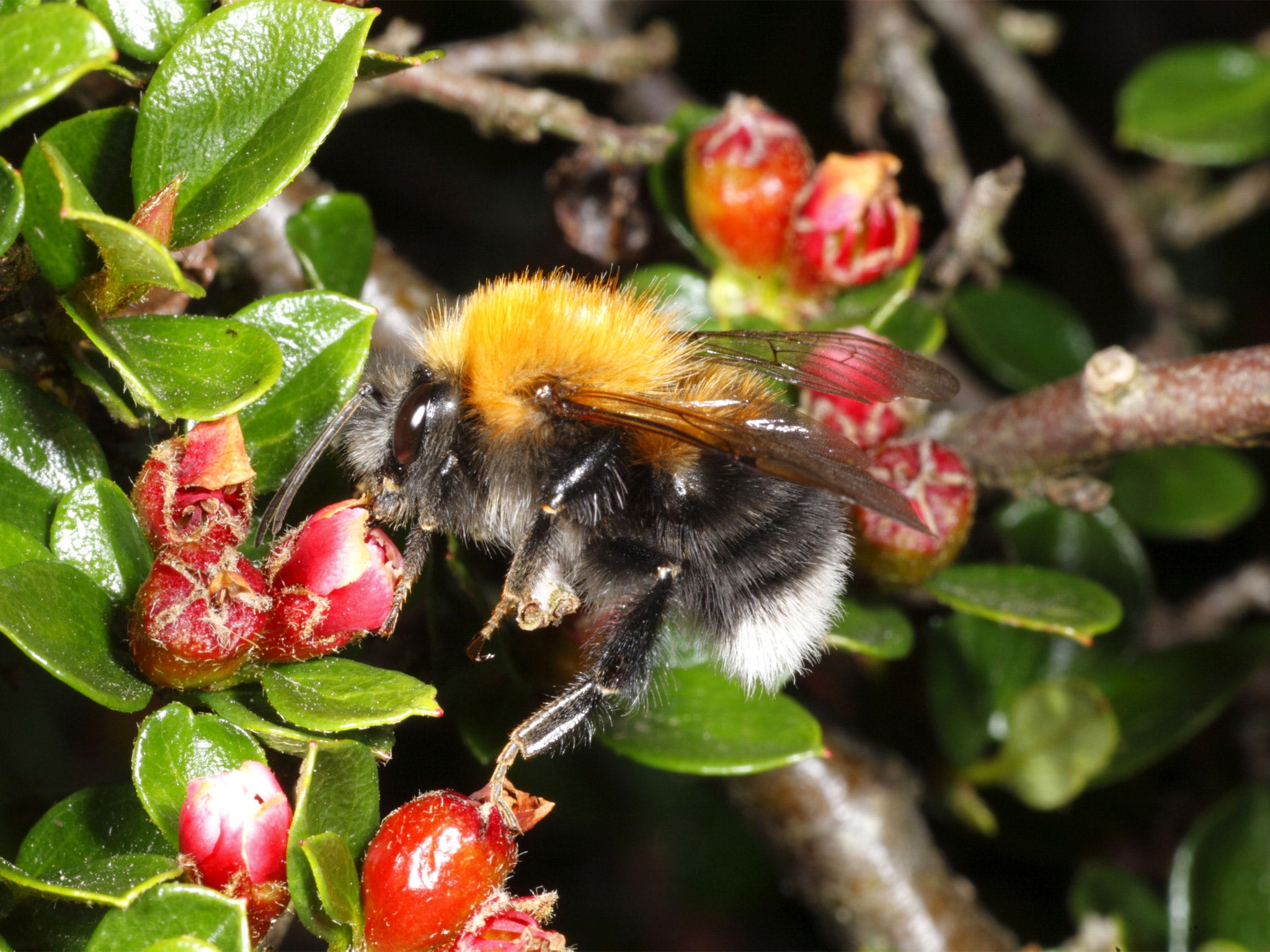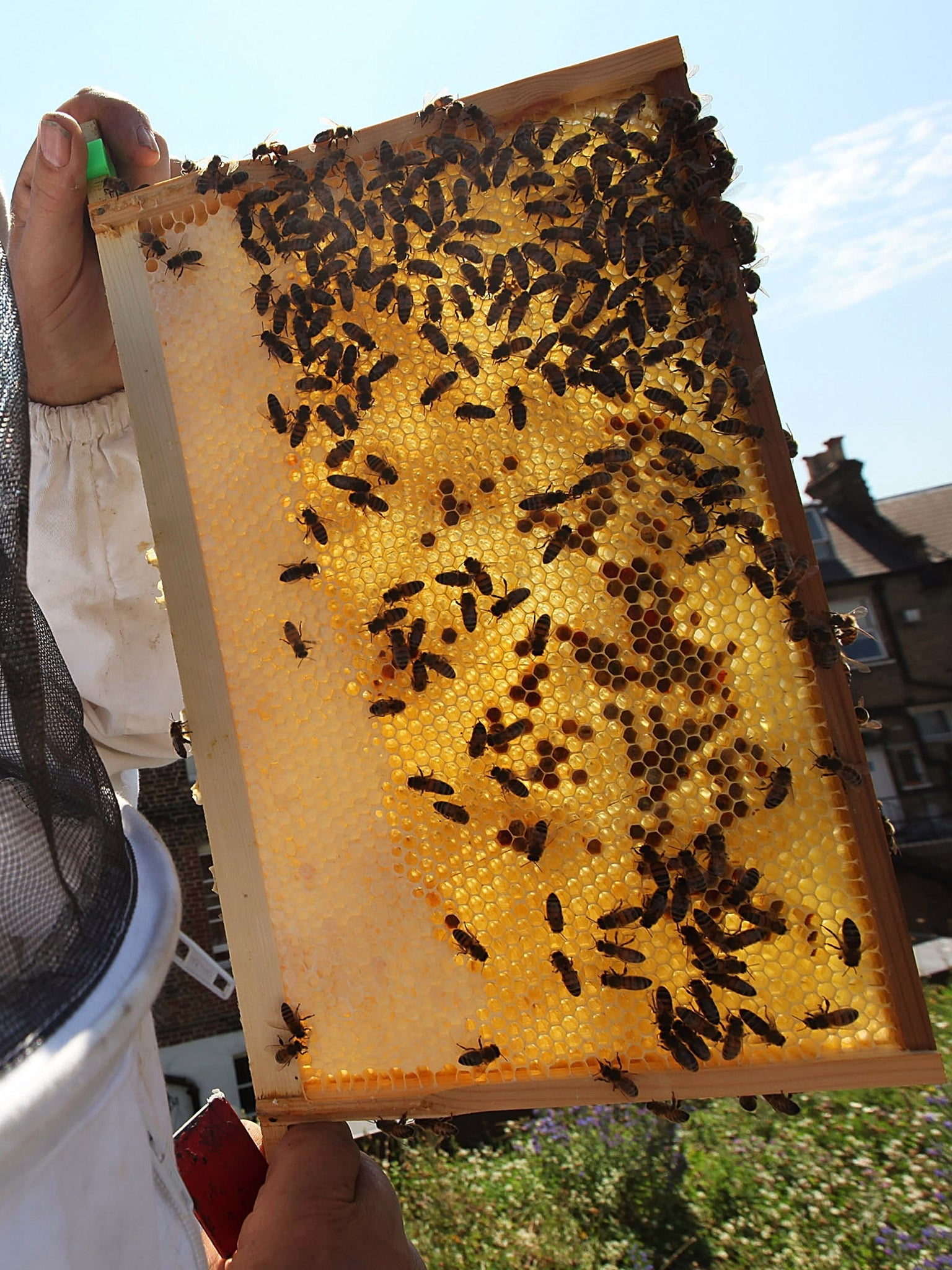Invasion of tough European bumblebees could wipe out their weaker British cousins, scientists warn

Your support helps us to tell the story
From reproductive rights to climate change to Big Tech, The Independent is on the ground when the story is developing. Whether it's investigating the financials of Elon Musk's pro-Trump PAC or producing our latest documentary, 'The A Word', which shines a light on the American women fighting for reproductive rights, we know how important it is to parse out the facts from the messaging.
At such a critical moment in US history, we need reporters on the ground. Your donation allows us to keep sending journalists to speak to both sides of the story.
The Independent is trusted by Americans across the entire political spectrum. And unlike many other quality news outlets, we choose not to lock Americans out of our reporting and analysis with paywalls. We believe quality journalism should be available to everyone, paid for by those who can afford it.
Your support makes all the difference.A species of bee from Europe that has stronger resistance to parasite infections than native bumblebees has spread across the UK, raising fears that it could wipe out large numbers of the country’s beleagured population of domestic species.
Since arriving in the UK from continental Europe 13 years ago, tree bumblebees have rapidly spread despite them carrying high levels of an infection that normally prevents queen bees from producing colonies, according to new research carried out by Royal Holloway, University of London.
The species has successfully spread at an average rate of nearly 4,500 square miles – about half the size of Wales – each year, according to the research, published today in the Journal of Animal Ecology.
The tree bumblebee's prodigious expansion and resistance to disease has increased concerns about the native bee population, which has been hit hard in recent ears by a combination of parasites, habitat loss and the widespread use of nerve-agent pesticides, known as neonicotinoids, and which have been partial and temporarily banned in the EU.
"Since its arrival to the UK, the tree bumblebee has been rapidly spreading despite high levels of this castrating parasite," said researcher Catherine Jones, from the School of Biological Sciences at Royal Holloway. "Bees are essential to our food chain and the populations of our native bumblebees have declined in recent decades,” she added.
Professor Mark Brown, from the School of Biological Sciences at Royal Holloway, said: "We still don't know whether there could be any negative impacts if the bumblebees compete for food or nesting sites. Further research should focus on how our native bees are affected and the pollination services that this new species provides."

Researchers collected tree bumblebee queens from the wild, checked them for parasites and then monitored colony development in a laboratory. Despite the bees having high levels of a roundworm or threadworm parasite that usually sterilises other species, a quarter of the queens were able to produce offspring.
However, while the tree bumblebee may pose a threat to native species by using up resources, it may be of some benefit because it may be able to protect them from parasites, the researchers found.
“The arrival of tree bumblebees could be hugely beneficial to us by absorbing parasite pressure from our native species, as well as helping to pollinate wild plants and crops," said Ms Jones.
Professor Brown added: "These findings show promising signs for bee populations in the UK.”
The Royal Holloway research comes a month after a new study revealed that the UK is suffering one of the worst rates of honeybee colony deaths in Europe. In the cold winter of 2012-13, 29 per cent of UK colonies died, a rate exceeded only by Belgium, at 34 per cent. By contrast, only five per cent of Italian colonies were lost. Summer losses were also high in the UK, at 9.7 per cent.
Join our commenting forum
Join thought-provoking conversations, follow other Independent readers and see their replies
Comments